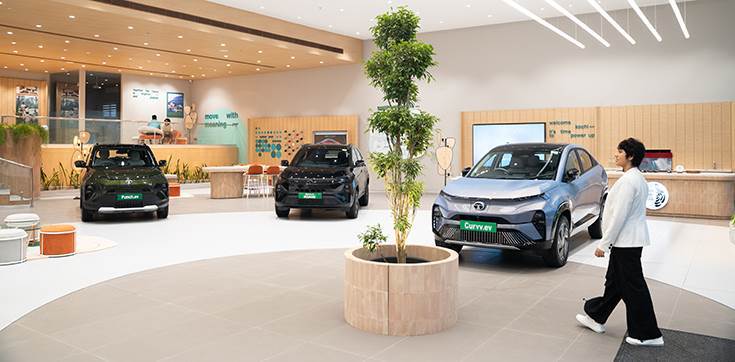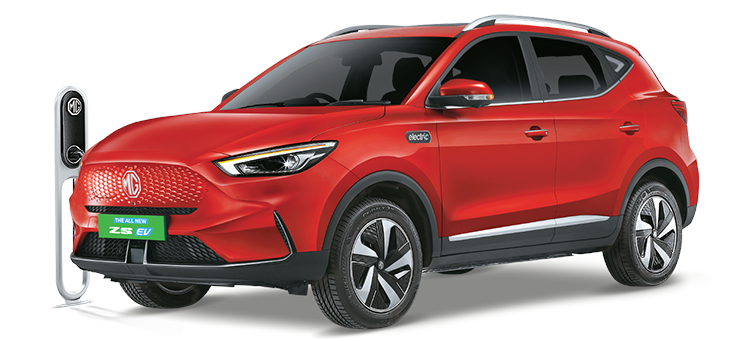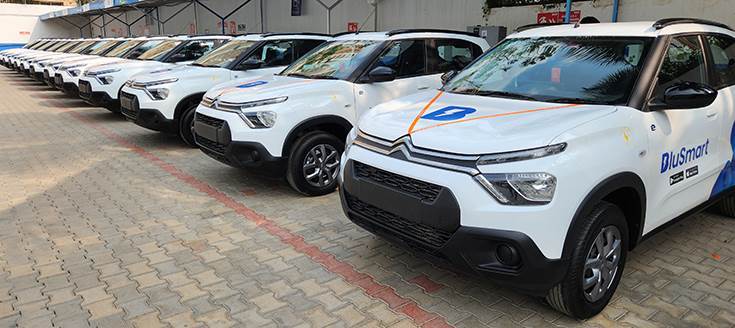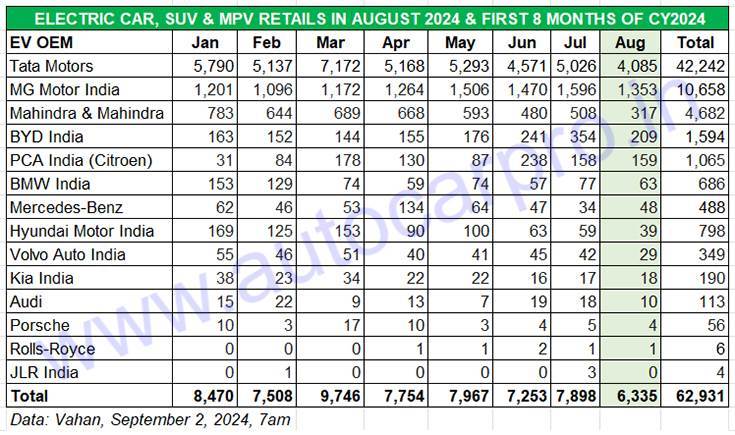Retail sales demand for electric passenger cars, SUVs and MPVs have fallen to their lowest level in the calendar year to date in August 2024. The 6,335 units bought and delivered to customers last month are down 10% year on year (August 2023: 7,012 units). Month on month, the August 2024 sales decline is even sharper – 19% – versus July 2024’s 7,898 units. This data is as per retail sales data published on the Vahan website (September 2, 7am).
On the cumulative sales front, total retails for the first eight months of CY2024 at 62,931 units are up 18% YoY (January-August 2023: 53,491 units) and are already 76% of CY2023’s total sales of 82,494 units. With four months still to go in CY2024, the ePV industry will surpass the 100,000 retail sales milestone for the first time.
 After 3 straight months of over 7,200 units, retail sales of ePVs fell to 6,335 units in August 2024. Cumulative 8-month sales are 76% of 2023’s total.
After 3 straight months of over 7,200 units, retail sales of ePVs fell to 6,335 units in August 2024. Cumulative 8-month sales are 76% of 2023’s total.
CY2024 opened with strong sales of 8,470 units, dropped 11% month on month to 7,508 units in February and then hit a high of 9,746 EVs in the FY2024-ending month of March. For the next four months, ePV retails were below the 8,000 mark.

 Tata Passenger Electric Mobility has recently expanded its EV-exclusive retail stores network with two new outlets in Edappally and Kalamassery, Kerala.
Tata Passenger Electric Mobility has recently expanded its EV-exclusive retail stores network with two new outlets in Edappally and Kalamassery, Kerala.
Electric passenger vehicle market leader Tata Motors, which has the largest portfolio comprising the Nexon EV, Tigor EV, Tiago EV, Xpres-T (for fleet buyers), Punch EV and the recently launched Curvv EV, sold 4,085 EVs in August 2024. This is a YoY decline of 14% YoY (July 2023: 4,777 EVs), reflecting the increased competition in the marketplace. In August 2024, Tata Motors’ ePV market share was 64%, down from the 68% it had in August 2023.
For the cumulative eight-month retail sales period of January-August 2024, Tata Motors has sold 42,242 units, which is an increase of 6% YoY (January-July 2023: 39,909 EVs). At this stage of the current calendar year, Tata Motors has achieved 70% of its total CY2023 sales of 60,000 units.
 MG Motor India, which has two EVs on sale (the ZS EV and Comet EV), sold 1,353 units in August, which gives it a market share of 21%, which is a marked improvement over the 17% share it had a year ago. The company, which now operates under the JSW Group brand, plans to introduce two new EVs – a five-door SUV and a compact MPV – based on the E260 EV platform. Both models are likely to be priced below Rs 15 lakh and will compete with the Tata Tigor X-Pres T EV and the BYD E6 MPV respectively. The company is also upping the ante on the sales network front by expanding to Tier 3 and Tier 4 cities as well as rural markets across India. There are plans to set up 100 new touchpoints by the end of 2024, and setting up 520 touchpoints in 270 cities by the end of March 2025.
MG Motor India, which has two EVs on sale (the ZS EV and Comet EV), sold 1,353 units in August, which gives it a market share of 21%, which is a marked improvement over the 17% share it had a year ago. The company, which now operates under the JSW Group brand, plans to introduce two new EVs – a five-door SUV and a compact MPV – based on the E260 EV platform. Both models are likely to be priced below Rs 15 lakh and will compete with the Tata Tigor X-Pres T EV and the BYD E6 MPV respectively. The company is also upping the ante on the sales network front by expanding to Tier 3 and Tier 4 cities as well as rural markets across India. There are plans to set up 100 new touchpoints by the end of 2024, and setting up 520 touchpoints in 270 cities by the end of March 2025.
 The third-ranked OEM is Mahindra & Mahindra with sale of 317 XUV 400s, its sole EV, in August 2024. This gives the company a 5% market share, down from the 6.45% it had in July 2024 with 508 units. Nevertheless, M&M’s eight-month sales in the year to date at 4,682 units are a near doubling of sales and up 95% YoY (January-August 2023: 2,393 units).
The third-ranked OEM is Mahindra & Mahindra with sale of 317 XUV 400s, its sole EV, in August 2024. This gives the company a 5% market share, down from the 6.45% it had in July 2024 with 508 units. Nevertheless, M&M’s eight-month sales in the year to date at 4,682 units are a near doubling of sales and up 95% YoY (January-August 2023: 2,393 units).
M&M, which will have added manufacturing capacity of around 100,000 units for its upcoming Born Electric vehicles by end-March 2025, plans to invest Rs 12,000 crore towards its EV programme. It has announced 4-5 new models on the INGLO platform, which will have key components from the Volkswagen Group.
BYD India, which sells the Atto 3 SUV, e6 MPV and launched the Seal sedan on March 5, is the No. 4 EV OEM both in August (209 units) and for the January-August 2024 period (1,594 units).

PCA Motors (Citroen India) sold 159 EVs in August, one more than in July 2024 and 35% up on August 2023’s 118 units. The company, which retails the e-C3, the electric avatar of the C3 hatchback, is seeing growing demand particularly from EV fleet operators. The Citroen eC3, which has a 29.2kWh battery pack and an ARAI-claimed range of 320km, should see increased sales momentum later this year. Between March and June 2024, the e-C3 has received bulk orders for over 7,000 units from Blusmart, OHM E Logistics and Cab-E.
Hyundai Motor India, which has discontinued the Kona in India, sold 39 Ioniq 5 EVs in August. This is the company’s lowest monthly EV sales in the past eight months. Cumulative eight-month sales at 798 units are down 11% (January-August 2023: 903 units).
 LUXURY EV RETAILS DOWN 14% IN AUGUST, UP 24% FOR FIRST 8 MONTHS OF CY2024
LUXURY EV RETAILS DOWN 14% IN AUGUST, UP 24% FOR FIRST 8 MONTHS OF CY2024
Mirroring the overall trend, retail sales of luxury electric cars, sedans and SUVs dropped 14% in August 2024 to 155 units (August 2023: 180 units), a similar YoY decline to July 2024. The numbers and YoY growth is much better on the cumulative sales front.
As per Vahan data, cumulative January-August 2024 retails for seven OEMs are 1,702 units, up 24% YoY (January-August 2023: 1,371 units).
BMW India remains the luxury EV market leader both in August (63 units) and in the first eight months of the year (686 units), which gives it a luxury EV market share of 40% in August as well as January-August 2024.
Mercedes-Benz India sold 48 EVs in August 2024, 14 more than in July 2024. Its combined January-August 2024 sales (488 EVs) are up 90% YoY (January-July 2023: 256 EVs) and give it a 29% share of the luxury EV market. At the end of August, the German carmaker is just 27 units shy of its CY2023 total of 515 units.
Volvo Auto India sold 29 EVs in August, 13 fewer units than it did in July. Cumulative eight-month sales at 349 units are an 8% improvement over year-ago sales of 324 units, and give it a 20% market share.
Audi India sold 10 EVs last month and takes its eight-month total to 113 units, up 68% YoY and currently has a 7% share of the luxury passenger vehicle market.

